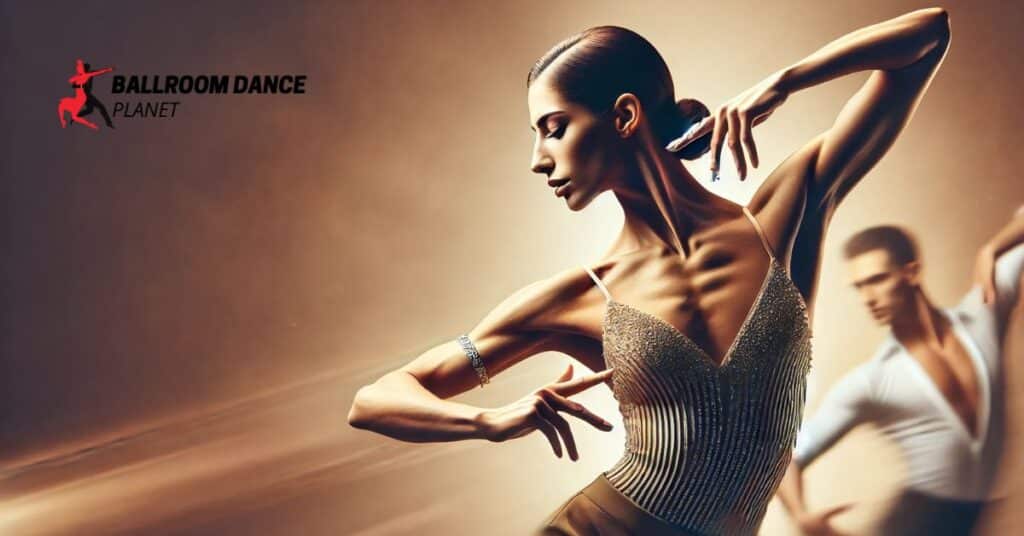Art Of Balance: Holding A Strong Frame
Holding a strong frame is like setting the stage for a dance performance, where your body becomes the canvas for expressive movement. In the world of dance, it refers to the ability to maintain a consistent, supportive posture that anchors your movements. Whether you’re twirling in a ballroom dance or popping moves in a hip-hop routine, your frame is the physical foundation that supports every twirl, leap, and sway.

Why Is a Strong Frame Important?
Imagine trying to build a house on sand—everything shifts unpredictably. Similarly, a strong frame offers stability and control, allowing you to execute your moves with precision and grace. It provides the necessary structure for balance, making it easier to dance with confidence and fluidity.
Different dance styles have unique interpretations of a strong frame:
- Ballroom Dance: Maintaining connection with a partner while keeping an upright posture.
- Contemporary Dance: A fluid approach, focusing on alignment and energy flow.
- Hip-Hop & Jazz: Controlled isolation and dynamic movement require a stable core.
Regardless of style, a strong frame anchors your performance, ensuring creative expression flows effortlessly.
Foundation of Strength: Building Posture and Core
Key Posture Elements
- Head over shoulders, shoulders over hips: Imagine stacking blocks neatly to avoid toppling over.
- Engaged core: A strong center provides balance and stability.
- Open chest & relaxed shoulders: Avoid hunching forward or creating unnecessary tension.
Core Strengthening Exercises
Building a solid foundation begins with core engagement. Here are some effective exercises:
| Exercise | Benefit |
|---|---|
| Planks | Improves core endurance and posture support |
| Bridges | Strengthens lower back and glutes |
| Pilates Roll-Ups | Enhances spinal flexibility and core strength |
| Balance Drills | Develops coordination and stability |
Mind-Body Connection
- Stay mindful of your alignment throughout practice.
- Use mirrors or video recordings for self-assessment.
- Consistency is key; reinforce good posture habits daily.
Identifying and Overcoming Common Mistakes
Holding a strong frame is an evolving skill, and mistakes are part of the journey. Here are some common issues and how to fix them:
| Mistake | Solution |
| Misalignment (hunched shoulders, tilted hips) | Regular mirror check-ins or filming practice sessions |
| Excessive tension (clenched jaw, stiff shoulders) | Relax consciously; practice deep breathing exercises |
| Ignoring posture checks | Periodically scan your body during practice |
| Trying to fix everything at once | Focus on one correction at a time for better results |
Tips for Correction
- Work with a dance instructor for personalized feedback.
- Break habits gradually by focusing on small, consistent improvements.
- Take pauses during practice to self-assess alignment and relaxation.
Achieving Harmony: Firmness vs. Fluidity
Balancing a strong frame with fluid movement is like walking a tightrope—firm yet flexible, structured yet flowing.
How to Maintain Both?
- Relaxation Techniques: Prevents robotic movement; try deep breathing or visualization.
- Mindfulness Practices: Stay present and aware of muscle engagement.
- Frame as a Guide Rail: Think of your frame as stable but adaptable, like a tree trunk with flexible branches.
Practical Applications: Exercises and Drills for Dance Frame Mastery
Developing endurance and precision takes dedicated practice. Try these exercises:
| Drill | Purpose |
| Posture Drills (e.g., balancing on one foot) | Improves control and stability |
| Holding Positions (e.g., Warrior pose, plank holds) | Builds endurance and strength |
| Slow, Controlled Movements | Deepens muscle engagement and awareness |
| Resistance Training (using stretch bands) | Enhances frame stability |
Tools for Improvement
- Stretch bands: Adds resistance to core exercises.
- Balance boards: Challenges stability and strengthens small muscles.
- Weighted posture sticks: Reinforces proper alignment in ballroom and classical dance.
Pros and Cons of Holding a Strong Frame
| Pros | Cons |
| Enhances balance and control | Can feel rigid if overemphasized |
| Improves partner connection in ballroom | Requires consistent practice to maintain |
| Allows for greater movement precision | Initial learning process may be challenging |
| Prevents injuries caused by poor alignment | Tension buildup can occur if not practiced correctly |
Final Thoughts
A strong dance frame is not about stiffness but about structured fluidity. By focusing on proper posture, core strength, and mindful relaxation, you can move with confidence and ease.
Whether on a social dance floor or a competitive stage, your frame will be the foundation that allows you to dance with intention and grace. Keep practicing, stay aware, and most importantly, enjoy the journey of mastering your frame!


